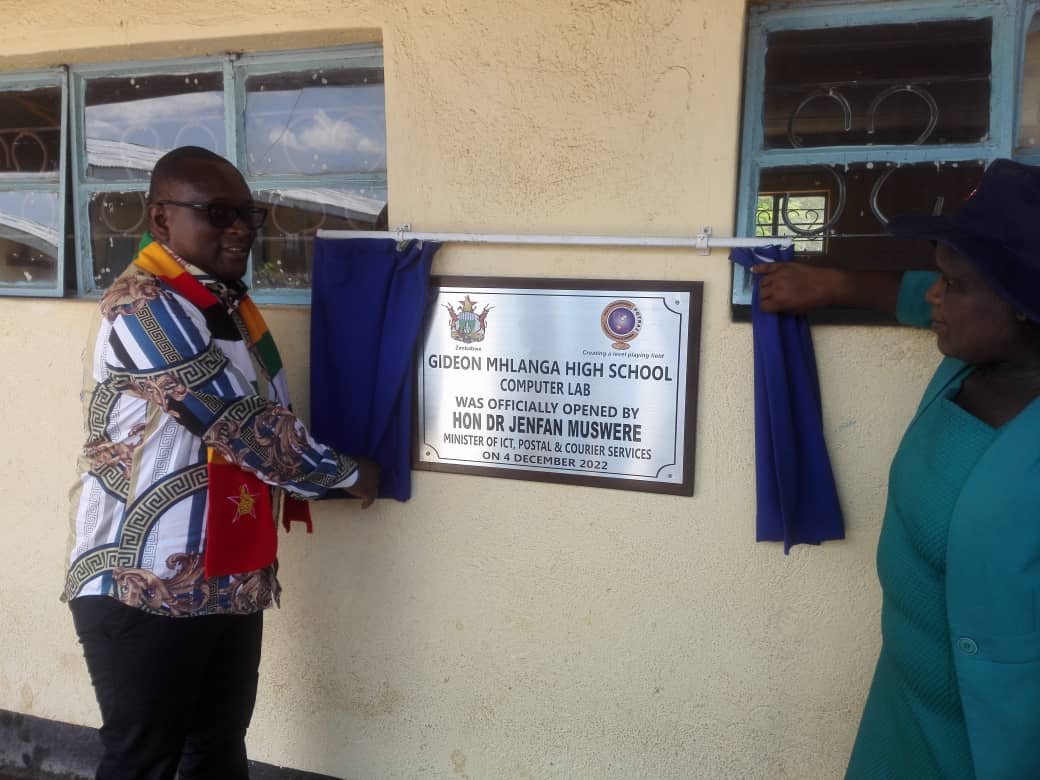|
Getting your Trinity Audio player ready…
|
By Clayton Masekesa
CHIPINGE – The Zimbabwe government has intensified digital capability in rural schools through the Presidential National E-learning Strategy which is aimed at bridging the digital divide between rural and urban schools.
The government last weekend donated 150 computers to five schools in the Chipinge district, with each school getting 30 computers, as the government forges ahead with the drive towards equipping rural schools with digital education.
The secondary and high schools that benefitted are Marirangwe, Chipinge, Rimbi, Mutema, and Gideon Mhlanga.
The computers are being distributed by the government through the Ministry of Information Communication and Technology (ICT), Postal and Courier Services, and Postal Telecommunications Regulatory Authority of Zimbabwe (POTRAZ)
In his address during the handover of the computers to the schools, the Minister of Information Communication Technology (ICT), Postal and Courier Services, Hon Dr. Jenfan Muswere said the computer labs in rural schools have revolutionized the micro and macroeconomic landscape of the country.
“We are here because of the Presidential National E-learning Strategy. We are moving forward with President (Emmerson) Mnangagwa’s mantra of leaving no place and no one behind. These ICT labs that we have launched today are going to revolutionize the entire micro and macroeconomic landscape of this country. These include the buildings, computers, connecting and teaching the kids and teachers to have digital skills. These skills are now essential in the fourth industrial revolution,” said Hon Muswere.
“We are focusing on the whole government approach. We have ZESA that is going to provide the power and energy needed for us to be able to construct base stations and to be able to deploy fibre and last-mile connectivity as we journey towards vision 2030. You are aware that ICT is now the common denominator across the country. ICT is now the oil that connects every sector at this particular juncture. The utilisation and access to the ICT in this country is now a basic human right,” he explained.
“The computers and accessories that we have brought to the schools will help the students to have the digital capability and they will also be able to do their research on various educational information that develop their education,” said Minister Muswere.
POTRAZ Director General, Dr. Gift Machengete, said the programme is not only about schools but has also equipped institutions of higher learning.
“We are not only focusing on primary and secondary schools but, we have also targeted institutions. These include laboratories at universities to take care of those who are coming from families with low means and who cannot afford computers. We have created laboratories for them,” Dr. Machengete said.
“We are now looking at all the sectors. These include e-learning, e-agriculture, e-health, and e-tourism among others. We want to make sure that all the ICT gadgets are distributed to every sector of the economy,” he said.
“If we are going to have economic development, it is going to be a result of all sectors pulling together. In terms of e-learning, we have equipped more than 7000 schools with computers. We intend to equip further health institutions that are clinics and hospitals. We have already started connecting clinics and police stations,” said Dr. Machengete.
Hon Muswere said the country has made great strides in penetrating internet access in rural areas.
